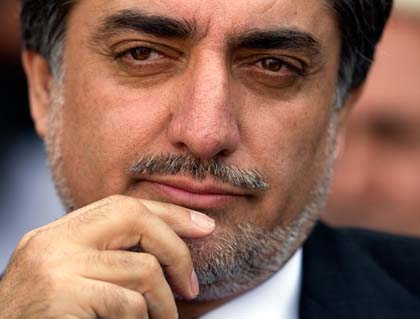KABUL - Chief Executive Abdullah Abdullah on Sunday said that news of the death of the Taliban's supreme leader Mullah Mohammad Omar has raised numerous questions, particularly in relation to the ongoing war in Afghanistan.
Abdullah questioned the context of the war and raised the question of who the Taliban contingent represent in the peace talks.
His death "has created lots of questions in Afghanistan and the world such as under which name the war is going on? And who do the Taliban represent in the peace talks," Abdullah asked.
However, some political analysts have criticized government's silence on Mullah Omar's death and say they should have used this as an opportunity, especially in terms of putting pressure on Pakistan.
They said that in the absence of President Ashraf Ghani, who is recovering from foot surgery in Germany, no one has the authority to take a stance on such issues – even matters as important as this.
"The government's political silence about Mullah Omar's death reveals that Kabul still follows the decisive policies of Pakistan," said Aziz Rafiye, head of Afghanistan Civil Society Forum (ACSF).
"On one hand, the Presidential Palace is on vacation, in the absence of President Ghani, while on the other, Afghanistan's politicians, by remaining silent about Mullah Omar's death, proved their inefficiency towards the people of this country," said Rafiye.
The analysts also believe that on the back of confirmation of Mullah Omar's death, the government could clearly put Islamabad under pressure to stop supporting insurgent groups.
Meanwhile, on Sunday a senior Afghan government official told TOLOnews that Mullah Omar's death two years ago had not been a secret and that the CIA and the NDS had both known about it.
The government officials, speaking on condition of anonymity, said that it had also been the Taliban who broke the news on Wednesday. He said the reason for this was that there had been an internal dispute among the Taliban over who would have the final say with regards to peace talks.
The news of the Taliban leader's death came only two days before the second round of peace talks were scheduled to take place in Pakistan. On Thursday, the day before the talks were to start, the Taliban reportedly requested a postponement. (Tolonews)

